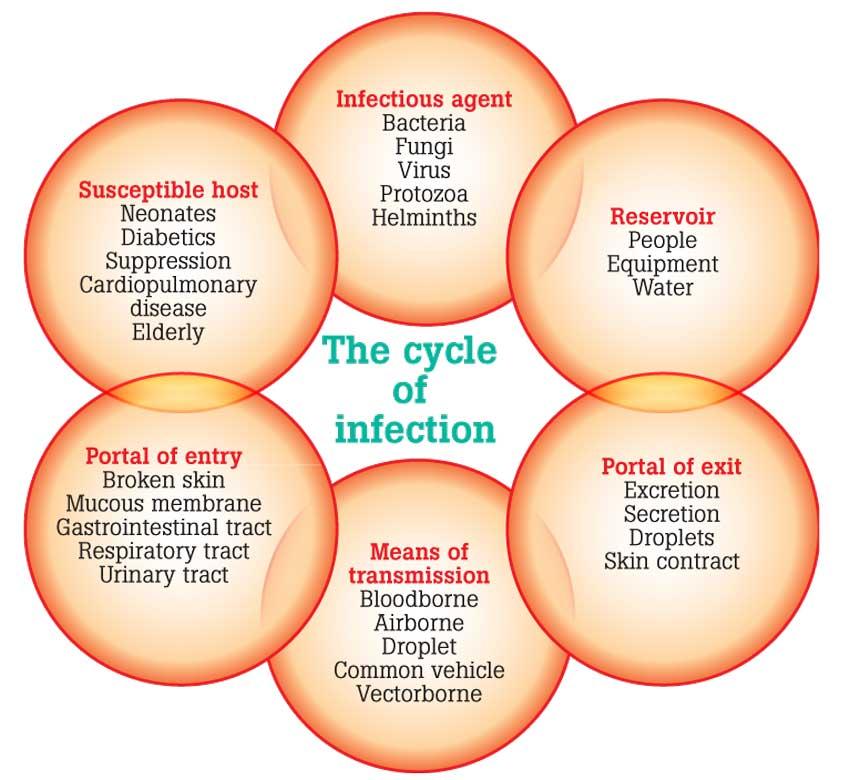Reply To:
Name - Reply Comment

 Infection is a frequently used word over the past two years as it led to more health complications and an increased mortality rate than non-communicable diseases during the COVID 19 outbreak. Before 2020, non-communicable diseases were main causes for global mortality while after 2020, infectious diseases or communicable disease have taken the lead. At present, the global human population is getting vulnerable to different kinds of newly introduced infectious diseases other than COVID 19 and they include black fungal disease, Tuberculosis etc. This week the Health Capsule sheds light on the methods that could be used to prevent infections during the pandemic.
Infection is a frequently used word over the past two years as it led to more health complications and an increased mortality rate than non-communicable diseases during the COVID 19 outbreak. Before 2020, non-communicable diseases were main causes for global mortality while after 2020, infectious diseases or communicable disease have taken the lead. At present, the global human population is getting vulnerable to different kinds of newly introduced infectious diseases other than COVID 19 and they include black fungal disease, Tuberculosis etc. This week the Health Capsule sheds light on the methods that could be used to prevent infections during the pandemic.
Most of these infectious diseases have only minor complications while some of them including pneumonia, AIDS and meningitis have some critical complications that can eventually become life-threatening. Few types of infections have been linked to the long-term, increased risk of cancer such as Human papilloma virus which is linked to cervical cancer, apart from that, Helicobacter pylori is linked to stomach cancer and peptic ulcers and Hepatitis B and C have been linked to liver cancer.
Here are several ways with which you can prevent infections :
01.Maintain proper personal hygiene
Wash your hands before and after preparing food, before eating, and after using the the washroom. Regularly clean your body, trim your nails, and try not to touch your eyes, nose or mouth with your hands, since that is a common way in which germs could enter the body.
02.Get vaccinated during proper time period
Vaccination can drastically reduce the chances of contracting many diseases. Make sure to have recommended vaccines for you and children during the proper time period.
03.Prepare food safely
Keep counters and other kitchen surfaces clean when preparing meals. Cook foods with the proper temperature in order to kill certain microorganisms in food. Cleaning of fresh fruits and vegetables with salts and clean water is important. Prompt and safe food storing practices also prevent the susceptibility to food poisoning.
04.Practice safe sex practices
Limit your sexual activity to only one partner who is having sex only with you to reduce exposure to disease causing organisms. Always use condoms if you or your partner have a history of sexually transmitted infections or high-risk behavior and try to limit sexual relations to one person.
05.Don’t share personal items.
Use your own toothbrush, comb, underwears and razor.
06.Travel wisely
If you’re traveling out of the country, take special vaccines with doctor’s recommendations such as yellow fever, cholera, hepatitis A or B, or typhoid fever.
07.Use of personal protective equipment
Use of new and clean personal protecting equipment such as gloves, face masks, face shield will protect you from infectious diseases. According to some research articles, wearing of unhygienic face mask is associated with the rise of “black fungal disease” (Mucormycosis) in Indian population.
08.Maintain proper social distance
Maintain the proper social distance with others by staying at home, limiting travel, avoiding crowded areas, and physically distancing at least 1 meter from each other.
09.Having balanced and immune boosting foods
Healthy and balanced diet consists different kinds of vitamins and minerals which are important macro nutrients that will provide the support for immune system to prevent, fight and recover from infections.
10. Avoid antibiotic overuse
Antibiotics are medicines used to prevent and treat infections. However, overuse of antibiotics will create antibiotic resistance due to bacterial changes that happen in response to the use of these medicines.
11. Accurate and rapid disease diagnosis and treatment
This factor will help to stop the manifestation of infectious diseases from acute stage to chronic level and it will reduce mortality rate.
12. Maintain healthy lifestyle
Doing regular exercises, avoiding junk food consumption will reduce the occurrence of some non- communicable diseases and it will help us to protect from infections. Because, some chronic diseases such as severe chronic kidney disease, chronic liver disease and diabetes mellitus can impair our immune system.
(The writer holds a MSc. Degree in Industrial and Environmental Chemistry from the University of Kelaniya and BSc. Food Production and Technology Management degree from the Wayamba University of
Sri Lanka)